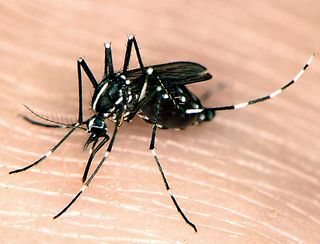Mosquitoes and warm weather go hand in hand. Coinciding with the arrival of mosquito season, the California State Legislature declared the week of April 21-27, 2013 as West Nile Virus and Mosquito & Vector Control Awareness Week in California. West Nile virus is a disease transmitted by mosquitoes that can result in debilitating cases of meningitis and encephalitis, and lead to death in humans, horses, some bird species and other wildlife.
"West Nile virus and other mosquito-borne illnesses continue to threaten public health in California," said Andrew Cox, president of the Mosquito and Vector Control Association of California (MVCAC). "Since these diseases are transmitted through the bite of infected mosquitoes, it is important that residents take extra precautions to protect themselves and their families from mosquito bites and prevent mosquito breeding in their neighborhoods."
The following safety precautions are recommended by the California Department of Public Health (CDPH):
- Eliminate or manage all sources of standing water to discourage mosquito breeding.
- Avoid spending time outside when mosquitoes are most active, especially at dawn and the first two hours after sunset.
- If you are outdoors when mosquitoes are biting, wear long pants and long-sleeved shirts.
- Apply insect repellent containing EPA-registered active ingredients such as DEET, Picaridin, IR3535, and Oil of lemon eucalyptus (PMD). Always apply according to label instructions.
- Make sure doors and windows have tight-fitting screens. Repair or replace screens that have tears or holes.
- Contact your local mosquito and vector control agency if there is a significant mosquito problem or potential mosquito breeding source where you live or work.
According to the CDPH, 479 human cases of West Nile virus were reported in 2012. Of the reported cases, there were 19 fatalities. CDPH and the Federal Centers for Disease Control and Prevention predict West Nile virus will again pose a public health threat in California in 2013. Adequately funded mosquito and vector control, disease surveillance and public awareness programs are the best way to prevent outbreaks of West Nile virus and other diseases borne by mosquitoes and other vectors.
For more information regarding local mosquito control, disease surveillance, and public education efforts, please contact the Greater Los Angeles County Vector Control District at (562) 944-9656 or visit www.glacvcd.org.




